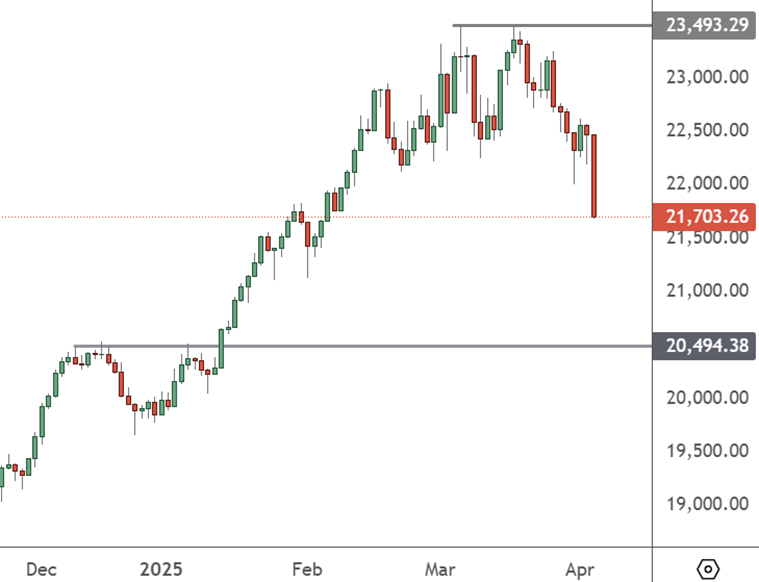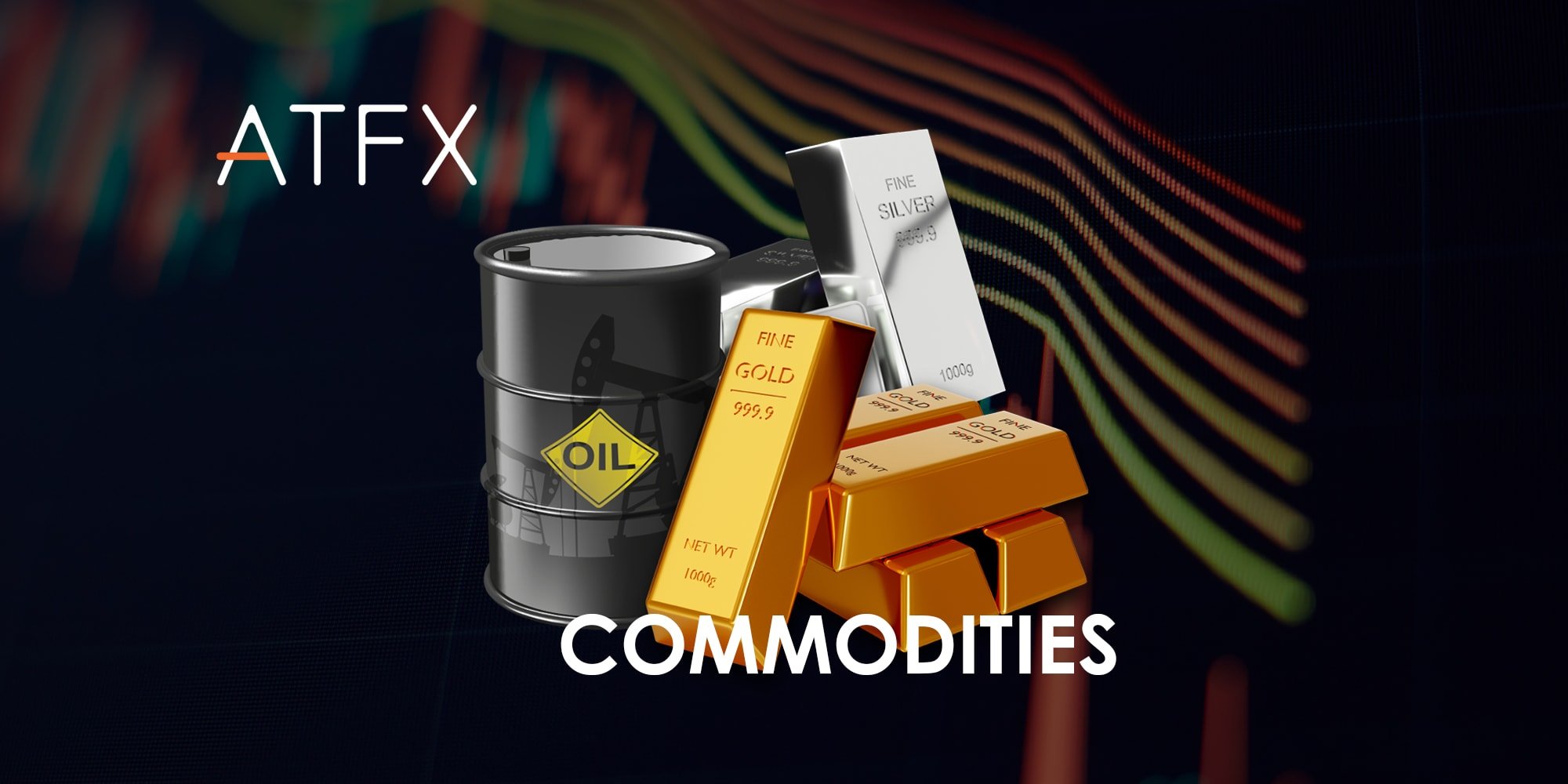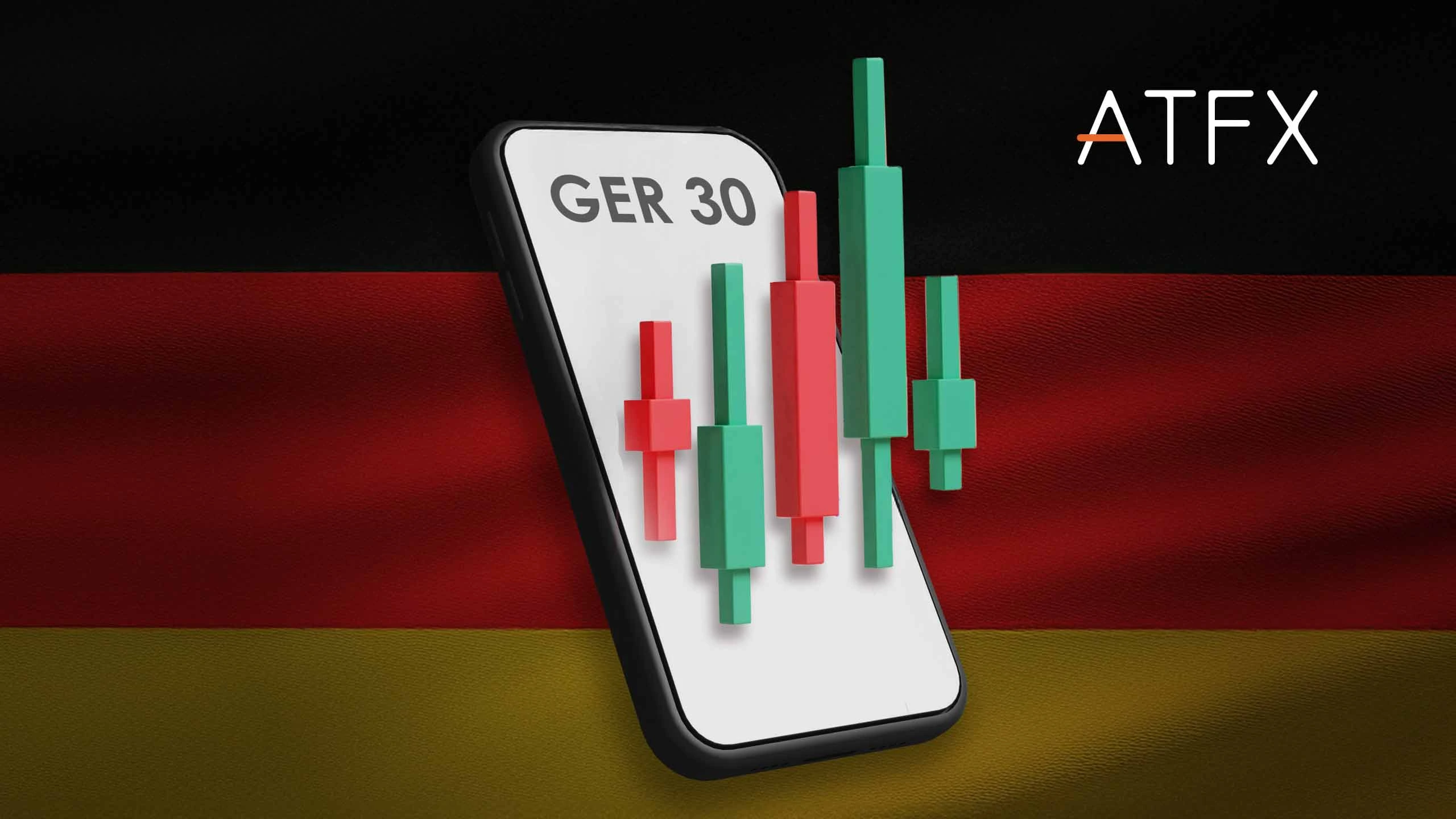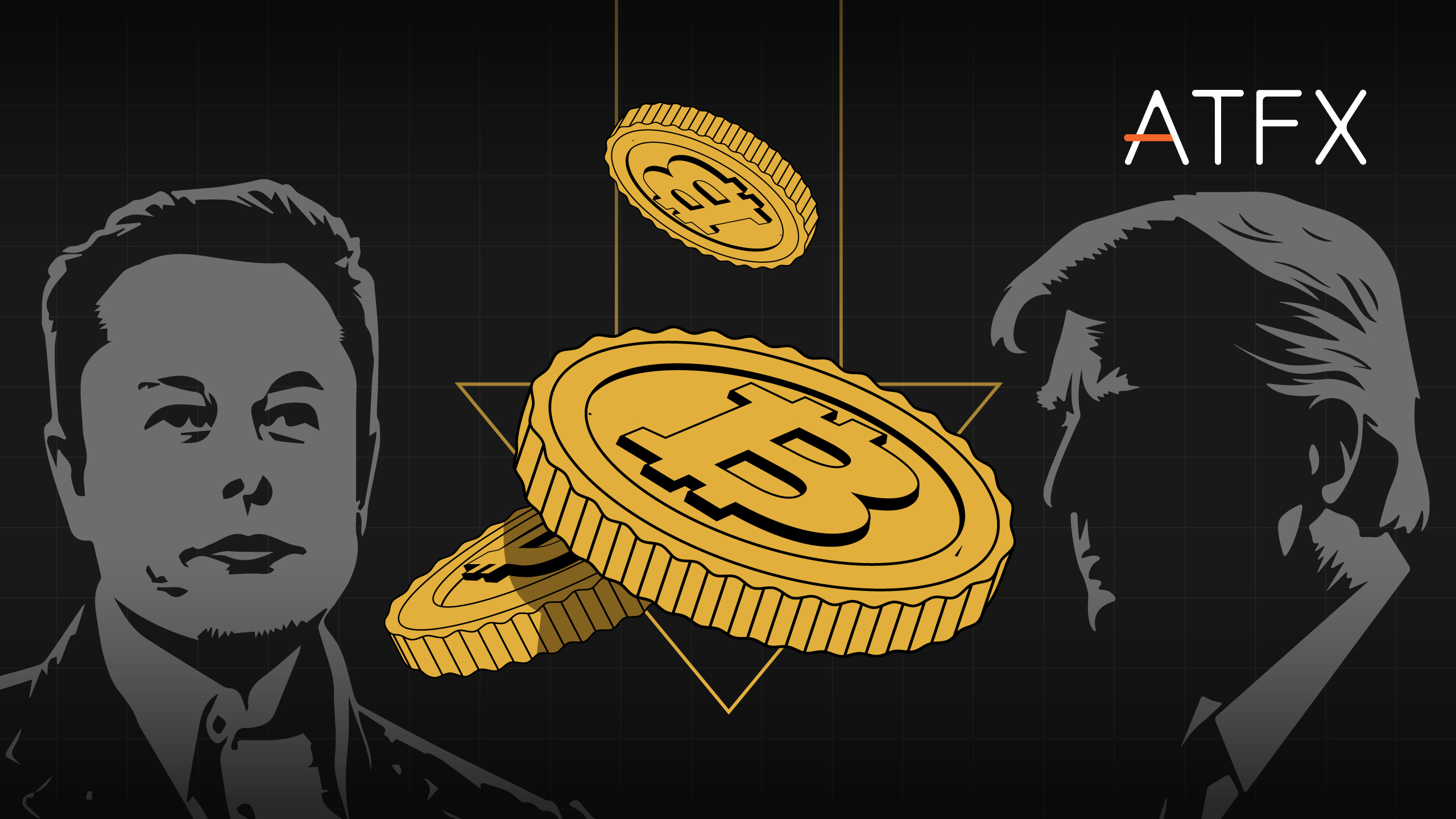European stocks suffered their largest drop since August as traders fear export tariffs.

GER 30 – Daily Chart
The German blue chip stock index slumped to 21,703 as the bullish rally began to collapse. The next support is at 21,250 and 20,500 levels.
European banks led the rally this year, and they were among the hardest-hit sectors, falling 5.5%. Automakers were also hurt, extending their year-to-date losses to -7.2%, after Trump’s tariffs on auto imports took effect after midnight.
France and Germany are now pushing for a more aggressive tariff response that could strengthen the EU’s negotiating stance. The huge escalation in Trump’s trade war threatens to wipe out a big part of the euro-area expansion that the European Central Bank forecasts for this year and next.
“The question is how fast this translates into hard economic data,” said Kevin Thozet at Carmignac in Paris.
Bond markets and safe havens, such as utilities and real estate rose as investors cut risk and moved money into defensive shares. Investors are now focusing on income in these times of uncertainty as they wait to see how countries hit back with their own countermeasures.
Tariff worries have shaken the positive mood that had boosted European stocks this year as they focused on increased government spending in Germany, and lower interest rates. The Stoxx Europe 600 Index had outpaced the S&P 500 by a record of almost 15 percentage points in the first quarter.
The European economic situation did not really warrant record highs in the stock market and late-stage bulls are now paying the price.
“The announcement was close to being the worst-case scenario for markets,” said Wolf von Rotberg, equity strategist at Bank J. Safra Sarasin.
“The size of reciprocal tariffs and their immediacy will put substantial strains on trade globally. A global economic slowdown seems almost inevitable, which the US won’t be spared from. As European and global equity markets have not been priced for such a scenario, they will likely have to adjust further to the downside”.
Investors are cautious as some sectors such as pharmaceuticals, timber, and semiconductors still have tariffs pending. Until the situation is cleared up and investors see the initial economic data then we may still see the trend continue with bonds and defensive stocks outperforming in Europe.


